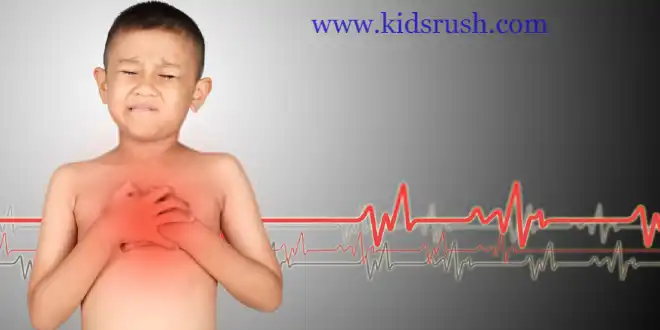When heart failure develops, the heart loses the ability to maintain adequate flow, even at the expense of increased pressures. Heart failure is generally due to a disturbance in the heart’s ability to contract. Although it is sometimes caused by poor relaxation and, therefore, inadequate filling. In this article on kidsrush.com, we will tell you about symptoms and treatment of heart failure problems in children. Let’s start!
How Heart Failure Occurs in Children
The function of the heart is to provide the tissues and organs of the body with a flow of oxygenated blood sufficient for its metabolic needs both at rest and during physical exercise. When heart failure develops, the heart loses the ability to maintain adequate flow, even at the expense of increased pressures.
The alteration can affect the left ventricle, which is responsible for maintaining systemic or greater circulation (left heart failure); to the right, responsible for the maintenance of pulmonary or lower circulation (right heart failure), or both (mixed heart failure).
Read Also: 6 Simple, Cheap Ways to Encourage Healthy Habits for Kids
What are the causes?
Heart failure in children occurs when there is a disorder of the heart muscle, when the heart is subjected to excessive load, or when there is a combination of these two factors.
The disorders that most frequently lead to heart failure, we could mention, among others, ischemic heart disease ( myocardial infarction ), arterial hypertension, cardiomyopathies, valve diseases, some congenital heart diseases, and, more rarely, pericardial diseases. Less frequently, heart failure is due to extracardiac disorders, such as hyperthyroidism or severe anemia.

What are the symptoms of heart failure in children?
The main symptoms caused by heart failure in children are those derived from a decrease in oxygen supply to the tissues, due to a decrease in cardiac output, and those derived from compensatory mechanisms, which tend to increase intravascular pressures and cause symptoms of congestion.
The universal symptom of heart failure in children is dyspnea or “feeling of shortness of breath”, which is manifested during physical exercise or, in more severe cases, at rest (resting dyspnea), with the decubitus position (orthopnea ), or appear suddenly at night (paroxysmal nocturnal dyspnea).
Other symptoms highly suggestive of heart failure, in this case, right, are edema in sloping parts (exaggerated swelling in the ankles and/or pretibial region) and the sensation of abdominal swelling (hepatomegaly or ascites).
Discover: What is flat head syndrome in babies and why does it occur?
How heart failure in children diagnosed?
It is the doctor who, in the consultation, makes the diagnosis, generally based on relatively simple clinical criteria. However, the diagnosis of heart failure is as important as that of the cause that is causing it, since in many cases it is reversible.
For this, other more sophisticated examinations are usually used, among which are echocardiography or cardiac catheterization.
Read Also: Obsessive-Compulsive Disorder in Children: What is it and how to treat it?
Which is the treatment?
The treatment of heart failure has undergone a real revolution in recent years. Currently, increasingly effective drugs are available and, used correctly, they have proven to be very effective in treating symptoms. However, the first step in the treatment of heart failure is to identify its cause, which in many cases can be reversible (for example, the replacement or surgical repair of damaged heart valves).
Sometimes patients may benefit from other procedures such as coronary angioplasty or implantation of a special cardiac pacemaker (cardiac resynchronization therapies or biventricular pacemaker).
Finally, in the most severe cases, and after having tried other conventional treatments, a heart transplant is necessary. Implantation of myocytes (contractile heart cells) or infusion of growth factors is currently being investigated as experimental treatment methods in patients with refractory heart failure.
Read Also: Walking Pneumonia in Kids: What You Need To Know?
